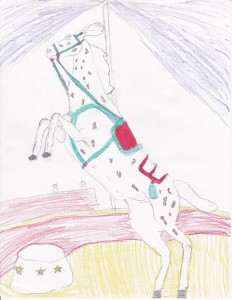You’ve heard of HPV (Human Papillomavirus), but you may not be sure what it is or what (if anything) you should do about preventing it in your children and teens.
[Most of the information that follows is adapted from the websites of the Centers for Disease Control and Prevention (see here at CDC).]
THE WHAT: HPV is the most common sexually transmitted infection (STI), and there are more than 40 types of HPV. It’s unrelated to HIV, herpes, or any other STI. HPV can cause genital warts, cervical and other types of cancer.
There are two types of vaccine. Cervarix is for females only, and protects against cervical cancers. The other, Gardasil, is for both males and females, and protects against genital warts as well as cancers of the cervix, anus, and vulva. As of 2012, over 46 million doses had been distributed in the US (most of them Gardasil). The vaccine is considered to be very safe and highly effective.
THE WHO AND THE WHEN: Both males and females can contract HPV, from genital contact or from oral or genital sex. It’s recommended that preteens (ages 11-12) of both sexes receive the series of three doses so that they can develop an immune response before they become sexually active. Gardasil is considered effective in teenagers and young adults through the age of 26.
THE WHY: Since a person can contract HPV even if he/she only has one sex partner, and since someone can have HPV for years without symptoms and therefore not even know that she or he has the virus, parents should consider whether this vaccine is right for their preteen or teen. The very good news is this: studies indicate that the vaccine is highly effective: the HPV rate of transmission in adolescents is declining faster than expected.
Ask your pediatrician about this. That’s why we’re here.
© 2013, MBS Writing Services
All rights reserved.

